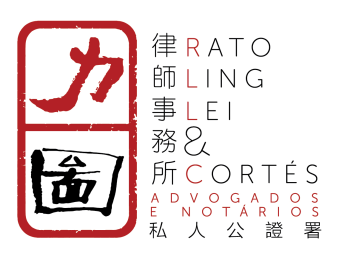Economic diversification cannot be achieved overnight; nonetheless, the government regularly promotes it in public announcements: "Next year, Macau will focus on diversifying the economy!" However, can Macau really have a diversified economy, given its existing dependence on gaming?
Tourism (specifically, gaming tourism) is arguably the only reliable industry in Macau. In recent years, 60% of the country's GDP has come from the gaming sector; its indirect contribution has also been considerable. Gaming has been active in Macau for many years and is generally associated with tourism, as demonstrated by the name of the industry's initial gaming operators (eg, the former exclusive gaming concessionaire stand, the Macau Tourism and Amusement Company).
Despite government efforts to reduce Macau's economic reliance on tourism (ie, gaming), the country's GDP per capita was MOP666,893 in 2018 and MOP108.304 million in the first quarter of 2019. Moreover, the gaming sector contributed 80% of the total revenue in this year's budget.
However, local businesses, catering companies, hotels and retailers have lost some of their best human resources to gaming operators, and it can be difficult to employ someone in Macau due to what may be considered unfair competition. At the time of writing, gaming workers account for between 20% and 30% of the country's working population.
On 26 June 2022 all existing gaming concession (and sub-concession) contracts will end (as provided by Law 16/2001) for gaming operators. However, little action has been taken to encourage Macau's economic diversification.
Along with recent efforts to establish business incubator centres and provide tax and financial incentives for small and medium-sized enterprises (that can truly diversify the economy), gaming concession and sub-concession contracts have set out investment obligations – although only in integrated resorts of a certain size and in miscalculated and underwhelming amounts in light of the gaming boom and market size.
In view of the Great Bay Area initiative and, further afield, the Belt and Road initiative, Macau must position itself as a hub for not only the gaming industry, but particularly the tourism industry. It must undertake the following:
- introduce mechanisms and obligations in gaming concession contracts that will be in force after 26 June 2022;
- ensure gaming operators hire local as opposed to foreign companies and entrepreneurs supporting small and medium-sized entities;
- ensure gaming operators direct a portion of their profits to developing technology start-ups; and
- create residence and/or work visas for international entrepreneurs.
Since 2001, the value of the global gaming market has risen exponentially from MOP50 billion to MOP130 billion. At this rate, its value is expected to reach MOP191 billion (a 6.8% increase) by 2022. Therefore, the government should bear in mind its major international gaming competitors (eg, Japan, India and Brazil) when developing Macau's future economic strategy.
The lifeblood of the Macau gaming industry is evidently entertainment and tourism, including luxury hotel services, restaurants and major shopping centres. However, the biggest profit margins are made from gaming. Largely for tax revenue purposes, several of Macau's neighbouring jurisdictions are considering legalising gambling, which will increase competition in the region.
Although competition from neighbouring jurisdictions is becoming fierce, the extent to which the gaming industry has changed over the past 20 years cannot be ignored. In other words, the major players of the future are not those inhabiting traditional gaming rooms in land-based casinos. Unlike neighbouring jurisdictions, Macau is missing out on a major economic opportunity – namely, online gaming, which accounts for a significant share of the gaming industry worldwide.
In order to diversify its economy, Macau must establish clear rules and enforce compliance in this sector. Economic diversification will also require gaming operators to attract other kinds of tourism; Singapore has become what it is today because of significant investment from major gaming operators (eg, Genting).
At present, gaming operators contribute 1.6% of their gross revenue to a public foundation which funds, develops and studies cultural, social, economic, educational, scientific, academic and philanthropic causes decided by the government.
Further, gaming operators contribute part of their gross operating revenue (1.4% in the case of Sociedade de Jogos de Macau and 2.4% in the case of the other operators) to the government for urban development projects, promoting tourism and social security.
However, rather than these kinds of contribution, gaming operators should arguably help to develop other beneficial initiatives.
Whether, under government supervision, gaming operators should contribute towards the development of Macau's basic infrastructure is debatable. However, revising Macau's gaming laws to promote and achieve greater economic diversification may ultimately depend on what the new executive and chief executive envision for the sector.
This article was first published by the International Law Office, a premium online legal update service for major companies and law firms worldwide. Register for a free subscription.



